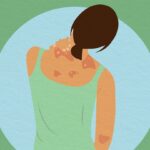1. You’re Skipping Your UC Medications
The most important thing to do if you have UC? “Take your medications as prescribed, and work closely with your doctor to stay well,” says Richard Bloomfeld, MD, a gastroenterologist and professor at Wake Forest Baptist Medical Center in Winston-Salem, North Carolina.
While it may be tempting to skip doses once you feel better, doing so can cause your symptoms to reappear. Skipping medications is the biggest reason that people experience flares, says Laura Yun, MD, a gastroenterologist and assistant professor of medicine at the Feinberg School of Medicine at Northwestern University in Chicago. Whether your doctor has you taking an anti-inflammatory drug, an immunosuppressant, or a combination of medications, none of them will work if you don’t take them as your doctor prescribes.
2. You’re Ignoring How Stressed You Really Are
Stress can fire up your sympathetic nervous system, the part of your nervous system linked to your fight-or-flight response, which then releases adrenaline and noradrenaline. These hormones may increase inflammation throughout your body, including the gut, worsening the symptoms of UC.
3. You’re Not Avoiding Trigger Foods
“There’s no food or food group that causes or cures ulcerative colitis,” Yun says. But many people with UC say that certain foods either bring on symptoms or make them worse.
Trigger foods differ for everyone who has UC. Aside from dairy, these trigger foods are common:
- Sunflower seeds, apple skins, raw kale, and other foods high in insoluble fiber (fiber that doesn’t dissolve in water and is difficult to digest)
- Some high-fiber vegetables, such as Brussels sprouts, cabbage, asparagus, and cauliflower
- High-fat foods
- Foods and drinks with lots of added sugar, like cookies, pastries, sugar-sweetened beverages, and syrup
- Artificial sweeteners and sugar alcohols
- Spicy foods
- Caffeinated beverages
If you’re trying to pinpoint your dietary triggers so that you can limit or avoid them, keep a food diary, and always work with a healthcare practitioner to ensure that you’re getting all the nutrients you need.
4. You’re Avoiding Certain Healthy Foods
It can be hard to eat a healthy diet — or anything at all — if you’re experiencing abdominal pain, cramps, or nausea. But if you’re not eating the right foods, you could be at risk of nutrient deficiencies, malnutrition, and unwanted weight loss.
Because people with UC can lose their appetite, keeping a long-term focus on eating a healthy, balanced diet is crucial.
While no single meal plan works for everyone, many people find they can tolerate the following foods:
- Low-fiber fruits such as bananas and raspberries, as well as blended fruits
- Fatty fish like tuna, salmon, and mackerel
- Cooked veggies like carrots and green beans
- Cooked starches like potatoes and sweet potatoes
- Cooked and cooled grains such as oatmeal and rice
Cutting leafy greens into small pieces or blending them into a smoothie can help you get your fill of their many health benefits without uncomfortable symptoms.
If you’re struggling to find foods that don’t trigger your symptoms, a doctor or dietitian who specializes in IBD can help you develop a personalized meal plan.
5. You’re Not Drinking Enough Fluids
Drink as much water as you can during a UC flare. Just keep in mind that you should think twice about some liquids if you have a flare, including sports drinks and sweetened beverages. Also try to avoid sugary drinks and drinks with sugar substitutes.
6. But You Do Drink Caffeine or Alcohol
7. You’re Drinking Carbonated Beverages
When you’re experiencing a UC flare, sodas and other carbonated drinks can make you uncomfortably gassy.
Because many of these drinks contain caffeine and sugar, both of which can contribute to diarrhea, you might be giving yourself a triple dose of irritation. Plain water may be your safest bet during a flare.
8. You’re Eating Large Meals
On top of reducing discomfort from UC symptoms, this strategy helps maintain a healthy food intake despite the nausea or loss of appetite that might accompany flares.
9. Non-IBD Medications Are Triggering Flares
10. You’re Not on the Right Treatment Plan
Your UC care team will work with you to develop a treatment plan that factors in the severity of your symptoms and your response to medications.
Usually, you’ll start with the least aggressive treatment and move on to stronger medications if necessary. However, some newer approaches to UC therapy start with an aggressive treatment before putting in place a less intensive maintenance plan.
A gastroenterologist with specific training around IBD will help you tailor your treatment plan, based on these factors:
- What symptoms you have
- Which complications you have
- Your overall health
If symptoms get worse or you start to experience more flares, you might need to adjust your current medication regimen. If you aren’t satisfied with the level of control you have over your UC, talk to your doctor about other options.
Read the full article here




